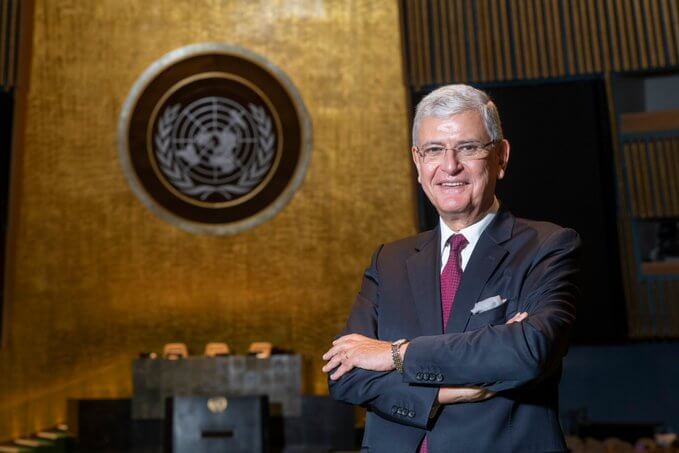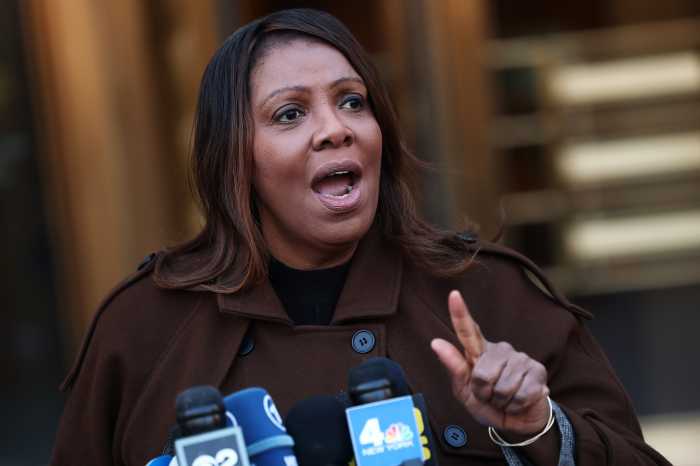Caribbean leaders will on Monday begin addressing virtually the 75th Session of the United Nations General Assembly.
Eight Caribbean Community (CARICOM) leaders, of 175 countries world-wide, will speak during Monday’s High-Level Meeting, marking the 75th anniversary of the establishment of the United Nations.
According to the UN’s list of provisional speakers, the prime ministers of Barbados, the Bahamas, St. Lucia, St. Vincent and the Grenadines, Trinidad and Tobago, and Antigua and Barbuda will speak during Monday’s High-Level Meeting.
Guyana’s newly-installed President Mohamed Irfaan Ali will also deliver his maiden address to United Nations General Assembly, but he will do so on behalf of the Group of 77 and China.
Beginning on Wednesday, CARICOM leaders and foreign ministers will participate in the UN General Assembly Debate, which culminates on Tuesday, September 29.
The UN indicates that the leaders of Suriname and Guyana will take part in the Debate on Wednesday; Dominica and Haiti on Thursday; Barbados and Antigua and Barbuda on Friday; Grenada, Jamaica, St. Vincent and the Grenadines, St. Kitts and Nevis, St. Lucia, Trinidad and Tobago, and the Bahamas on Saturday; and Belize next Tuesday.
The UN General Assembly said its 75th Session, which began on Sept. 15, will be unlike any other in the organization’s three quarters of a century of existence, due to the ongoing global coronavirus (COVID-19) pandemic.
“This month, there will be no bumping into presidents or the occasional global celebrity in hectic and sometimes crushed corridors at UN Headquarters in New York,” the UN said.
“There will be no marveling at seemingly endless presidential motorcades on First Avenue (in New York) and no ‘standing-room only’ moments in the gilded General Assembly Hall, as the organization’s busiest time of the year is reimagined in the time of COVID-19,” it added.
The UN said most leaders will not be appearing in person, and meetings will be conducted virtually.
“But that’s not to say that the wheels of global diplomacy and sustainable development will not be turning at the usual speed,” it said.
The UN said the centerpiece of any new General Assembly is undoubtedly the General Debate.
“It’s a globally unique occasion at which presidents and heads of state (or sometimes their deputies or foreign ministers) take to the dais, and address a world audience on an issue of their choosing,” it said. “This year, because of the pandemic, world leaders will be staying away and have been invited to send in pre-recorded videos of their speeches which will be broadcast “as live”.
The UN said speeches are expected to be introduced by a New York-based representative of each state, who will be physically present.
“However, any world leader has the right to turn up in person, to deliver his or her keynote address, an opportunity that at least one president seeking re-election this year, is reported to be mulling over,” the UN said without identifying that president.
The UN said the decision to introduce pre-recorded videos to the High-Level General Debate, which takes place at the beginning of the 75th session of the General Assembly, was made by the UN body, using the novel “silence procedure” method.
Under this method, the UN said draft resolutions are circulated by the President of the General Assembly, which gives member states a deadline of at least 72 hours, to raise objections.
If there are no objections, the president circulates a letter, confirming that the resolution has been adopted, the UN said.
The United Nations was established in 1945 and has been marking its 75th anniversary with what the UN Secretary-General António Guterres has called an extended “people’s debate”, which “promises to be the largest and furthest-reaching global conversation ever on building the future we want.”
The UN said Monday’s event, at UN headquarters, to celebrate the milestone, which will also take place online and remotely, will aim to “generate renewed support for multilateralism.”
“[This is] an issue many believe has become ever more urgent as the world faces up to the COVID-19 pandemic,” the UN said.
It’s expected that the Secretary-General will address, in person, the High-Level event to mark the 75th anniversary in the General Assembly Hall, the UN said.
The Sustainable Development Goals, or SDGs – the 17 internationally-agreed targets to reduce poverty and maintain peace, whilst protecting the planet – have remained at the top of the UN’s agenda during 2020, with many arguing, including the UN Deputy Secretary-General, that the pandemic has only underlined more forcefully why they are so important, the UN said.
At the 75th General Assembly session, it said the SDGs will be put under the spotlight in what is being described as a “first of its kind 30-minute global broadcast”, created by writer and director, and SDG advocate, Richard Curtis, which will take audiences across the world “on a dynamic exploration of the times we live in, the multiple tipping points our planet faces, and the interventions that could transform our world” up to 2030, when, it’s hoped, the SDG targets will be met.
Meanwhile, the UN said the SDG Action Zone, which, in past years, has provided a focal point and meeting place at UN headquarters to promote the global sustainable development agenda, is moving online with appearances from “inspirational leaders” promised on the bill.
The 75th session of the UN General Assembly opened last Tuesday with a moment of silence against the unprecedented backdrop of the COVID pandemic, as the new president told delegates that the coronavirus had driven home the value of multilateralism “to address our collective challenges”.
“The context in which we are working, serves to remind us of the necessity of the multilateralism system”, Volkan Bozkir told delegates sitting distanced apart in the gilded hall at New York headquarters.
Bozkir told the plenary that this week’s General Debate would be addressed by more Heads of State than ever before.
He said that two weeks of crucial High-level meetings, “will guide our work for the session” and expressed confidence that their impact “will not be compromised by the circumstances”.
The newly-minted Assembly president promised to do his “utmost to support and lead” the High-Level meetings to commemorate the 75th anniversary of the UN; the 25th anniversary of the Fourth World Conference on Women; a high-level commemoration to promote the International Day for the Total Elimination of Nuclear Weapons; and the Biodiversity Summit.
“During the 75th session, we will hold two General Assembly Special Sessions”, he informed the plenary, “one on COVID-19 – the first Special Session convened to discuss a pandemic – and the second against corruption”.
Bozkir also set out a list of priorities for his tenure, which include reviewing the UN Global Counter-Terrorism Strategy, commemorating the 25th anniversary of the World Summit for Social Development, and preparing for the Fifth UN Conference on Least Developed Countries.
The UN said there will also be a high-level meeting on water-related goals and targets of the 2030 Agenda and Oceans Conference, together with revitalizing the work of the Assembly, and discussions over Security Council reform.
After warmly congratulating Bozkir, UN Secretary-General António Guterres offered his full support and committed partnership.
“This year will be a critical one in the life of our organization”, he said. “We must continue to respond to the immediate impact of the COVID-19 pandemic by strengthening health systems and supporting the development and equitable distribution of treatments and vaccines”.
The UN chief highlighted the need to build a strong recovery, based on the 2030 Agenda and the Paris Agreement, while continuing the Assembly’s work across the full range of global challenges ahead, including peace and security, disarmament, human rights, gender equality and sustainable development.



























